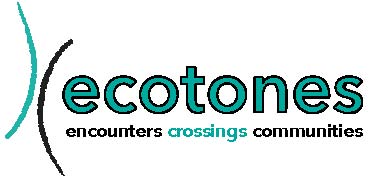Présentation des sessions > Session 1: Identités en transitionSession 1: Identités en transition Jeudi 22 juin, 9h45-10h45 Animée par: Marie Kruger Srilata Ravi: Sans visa: Narratives of ‘undocumentedness’ in the Indian ocean Island writing on “undocumentedness” expresses the coming together of individuals on the run as a confluence of disparate and multiple stories that continue to haunt and inform cultural memory. In 2011 the island of Mayotte, one of the four islands comprising the Comorian archipelago, situated off the south-east coast of Africa, to the east of Mozambique and north-west of Madagascar, finally became an official department of France. As Mayotte enjoys the financial benefits that come with EU (European Union) membership, its political status has created an artificial divide between islands in the region that have a long history of inter-island migrations. Strict border controls have destabilized the region’s human geography and as desperate Comorians flee their poverty stricken islands in search of a more promising future in France’s 101st overseas department, Mayotte’s detention centre continues to overflow and almost 40 per cent its population remains “undocumented”. In this paper, I will explore how fictional narratives of island migrations depict cultural tensions arising from the complex social and political situation in the Comorian archipelago. Through a comparative reading of Lawrence Hill’s The Illegal, Salim Hatubou’s Hamouro and Nathacha Appanah’s Tropique de la violence, I will demonstrate how island writing as transformative translation across borders can produce valuable contributions to the public conversation on “undocumentedness.” Anna Correia De Sa: What it means to be a Portuguese in Guyana? In 1834, the first Madeirans set ship for British Guiana. Many died from exposure to the tropical environment, some returned to Portugal, but those who remained soon wove the foundation of what is now a thriving segment of the Guyanese population. The most visible Portuguese traits which shone among these labourers were their swiftness and aptitude for business. This, along with the opportunities brought by a hierarchical, race-based societal structure imposed by the British Empire, allowed the Portuguese community to elevate itself to the wealthiest layers of society. Almost 200 years later, the cultural heritage which bridged the Portuguese to their native lands has dissipated, as they quickly adapted to their new environment, transforming their need for survival and the challenging landscape into opportunities for betterment. While their presence in Guyana remains discreet (linked perhaps to a certain level of communitarianism and limited political engagements), their influence stands out in aspects of societal life such as religion and business. What it means to be a Portuguese in Guyana today is a question intrinsically tied to the level of social and cultural immersion of the Portuguese in forging the yet nascent Guyanese identity. The answer is embodied in the evolution of the Portuguese identity and self-perception which transformed peasant immigrants into a Guyanese merchant bourgeoisie. Its relevance lies in the construction of a Guyanese identity founded on the celebration of cultural and human diversities. |


